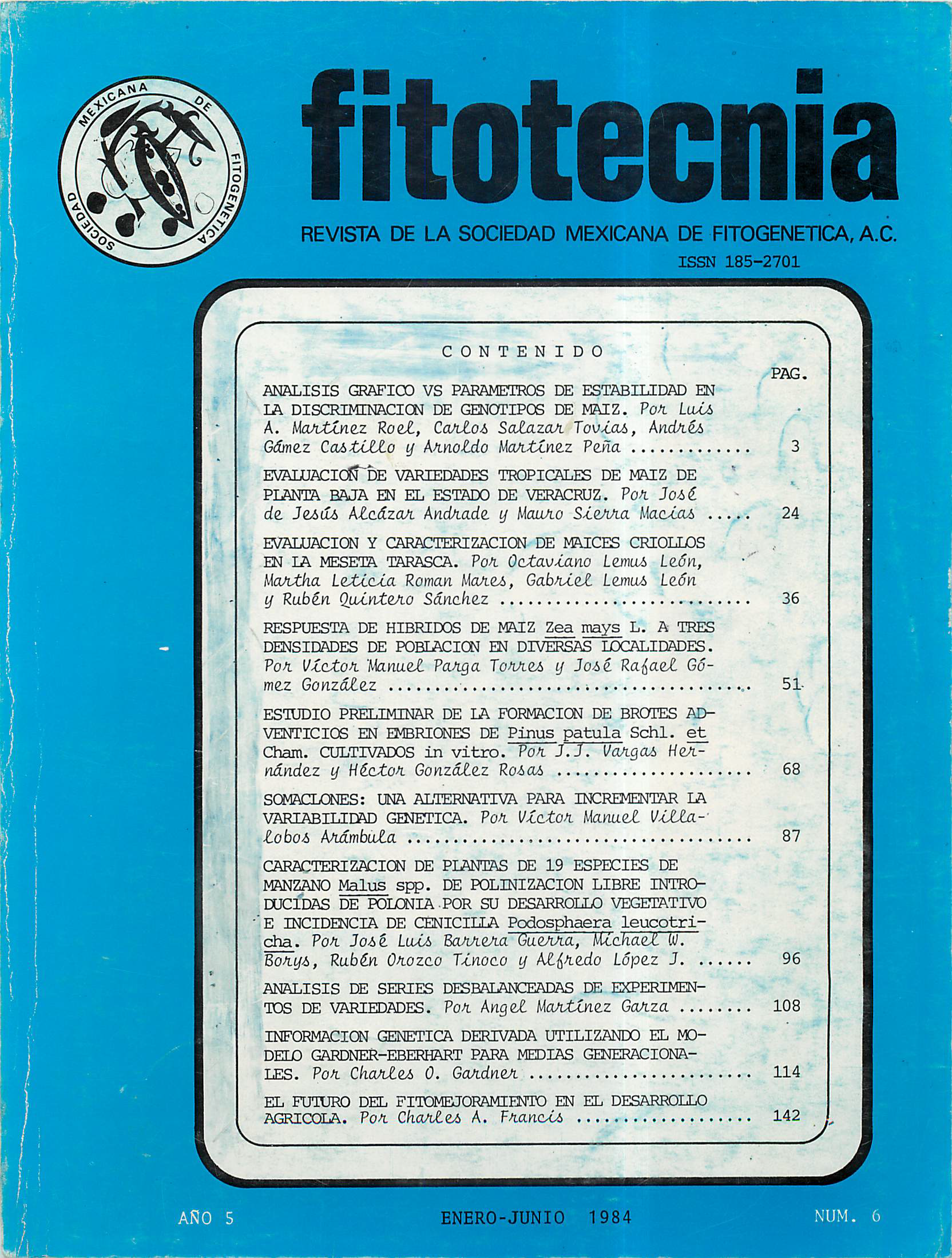EVALUATION OF TROPICAL VARIETIES OF LOW PLANT CORN IN THE STATE OF VERACRUZ
Main Article Content
Abstract
For determining the adaptability of maize experimental varieties developed for the humid tropic, in the winter-spring cycle of 1979/1980 eight uniform trials of short plant varieties were planted in different environments of the state of Veracruz. The design used was randomized blocks with 10 treatments and 4 repetitions, and for the variety discrimination the method proposed by Eberhart and Russell in 1966 was followed. lt was found that the single cross experimental hybrid HEV-2 was statistically superior in yield to the rest of the varieties at the 1% level of significance; according to the 1970 classification ·of Carballo the stable varieties were HEV-2, Cotaxtla XVI, Cotaxtla XVIII first CSMV, Tuxpeño cycle 17, Cotaxtla XVII and a hybrid from a prívate company; the double cross hybrid H-509. and the CMB-10 performed better in favorable environments and were consistent; the varieties V-524 and CMB-9 performed betler in unfavorable environments and were consistent. The single cross HEV-2 showed the highest yield and stabil ity which is normally not expected for a single cross; the other varieties that showed stability were open pollinated ones with the exception of the hybrid from a prívate company.

